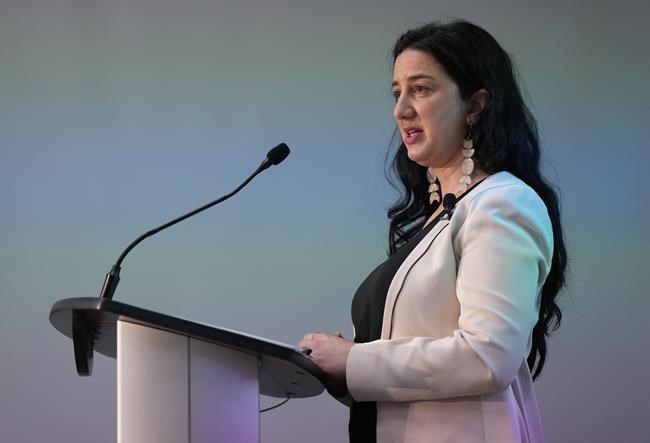VANCOUVER ŌĆö A recent court decision about workplace discrimination involving the mother of a young child is "a significant win for gender equality," British Columbia's human rights commissioner said.
Kasari Govender said Monday the decision from the B.C. Court of Appeal on the case between Gibraltar Mines Ltd. and welder Lisa Harvey "is an important step forward" in gender equality in the workplace, since employer discrimination against a worker's "family status" inevitably affects more women than men.
"We know that in many families, women continue to be disproportionally responsible for caregiving, for caring for children, caring for seniors and other dependants in their households," Govender said. "And this decision, ultimately, will ensure that employers treat them with more equality than we had before."
The B.C. Court of Appeal ruled Friday that cases of employer discrimination against a worker's "family status" can happen "whenever" the terms of employment interfere with an employee's parental duties.
Last year, a judicial review into the human rights tribunal decision on the same case ruled that a discrimination complaint is only valid if an employer actively made changes to the terms of employment that resulted in interference with a worker's parental duties.
The judicial review agreed with Gibraltar's claim that legal precedent shows there would need to be a change in employment terms in order to find discrimination on the basis of family status.┬Ā
The human rights tribunal appealed the review, leading to the Court of Appeal decision on Friday.
The Appeal Court sent the case back to B.C. Supreme Court to be considered under the criteria it set out in the new ruling.
Taseko Mines, Gibraltar's parent company, declined to comment on the case saying the matter remains before the courts.
Govender said the previous judicial review created a "higher standard" for people seeking protection against "family status" discrimination to qualify, making it difficult for people to legally challenge discrimination they experience.
Family status discrimination, Govender said, is an extension of systematic sexism that has become such a common problem in B.C. workplaces that many are becoming desensitized to it.
"It's so ubiquitous we almost don't see it anymore," she said. "And that's why this is such an important decision and such an important issue to work on. Sexism shouldn't be so entrenched that we don't see it anymore. We need to make it visible, and we need to tackle it."┬Ā
The court decision says Harvey works at Gibraltar alongside her spouse, and the two "worked the same 12-hour shifts" when she became pregnant.
After Harvey gave birth and before her maternity leave ended, the welder asked Gibraltar to "change her and her spouseŌĆÖs work schedules to facilitate childcare arrangements." The two sides were not able to agree on a solution, resulting in Harvey takinga complaint to the B.C. Human Rights Tribunal, alleging discrimination based on family status.
This report by The 91įŁ┤┤ Press was first published April 24, 2023.
Chuck Chiang, The 91įŁ┤┤ Press



